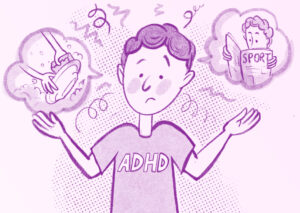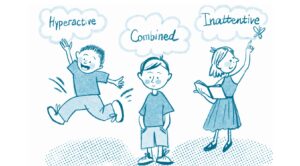As parents, we strive to give our children the best start in life—offering love, guidance, and protection. But sometimes, no matter how much support we provide, children struggle with emotional, psychological, or behavioral challenges that are beyond what we can handle alone. This is when the guidance of a child Psychologist can make a transformative difference.
In today’s world, where academic pressure, social dynamics, digital exposure, and family stressors are on the rise, mental health issues in children are becoming increasingly common. Identifying the signs early and seeking professional help can prevent small concerns from developing into long-term emotional or behavioral disorders.
This comprehensive blog explores:
- Common signs that your child may need psychological support
- Types of emotional and behavioral challenges in children
- How child psychologists help
- When to seek immediate intervention
- How experts like Arpan Sarma, psychologist and counselor, support child mental wellness
Table of Contents
ToggleWhy Mental Health Matters in Childhood
Childhood is a foundational phase where emotions, self-identity, social skills, and coping mechanisms are developed. If a child experiences emotional pain, trauma, or chronic stress without healthy outlets or support, it can lead to:
- Poor academic performance
- Low self-esteem
- Relationship struggles
- Long-term anxiety or depression
According to global mental health statistics, nearly 1 in 5 children experience a mental health disorder. Yet many go undiagnosed or untreated, simply because the signs are misunderstood or ignored.
Early Warning Signs Your Child May Need a Psychologist
It’s natural for children to act out, experience mood swings, or struggle during transitional periods like starting school, parental separation, or adolescence. But when these behaviors persist or intensify, they may indicate a deeper issue that requires professional intervention.
Here are key emotional, behavioral, and social warning signs to look for:
Persistent Sadness or Withdrawal
- Your child seems consistently sad, tearful, or irritable
- They avoid social activities or withdraw from friends and family
- They express feelings of worthlessness or say things like “Nobody likes me”
What it could mean: Depression, low self-esteem, or social anxiety
Sudden Changes in Behavior
- Noticeable personality shifts—once cheerful and outgoing, now angry or withdrawn
- Outbursts of anger, aggression, or intense mood swings
- Becoming clingy or excessively fearful
What it could mean: Anxiety disorders, trauma response, or a developing mood disorder
Trouble at School
- Declining grades despite ability
- Difficulty focusing, sitting still, or following instructions
- Frequent complaints from teachers about disruptive or withdrawn behavior
What it could mean: ADHD, learning difficulties, or emotional distress
Sleep Issues
- Frequent nightmares or night terrors
- Insomnia or oversleeping
- Fear of sleeping alone or bedtime anxiety
What it could mean: Anxiety, stress, or unresolved trauma
Changes in Eating Habits or Weight
- Sudden weight gain or loss
- Binge eating or refusal to eat
- Obsession with body image
What it could mean: Emotional eating, stress-related behavior, or early signs of eating disorders
Frequent Physical Complaints
- Headaches, stomach aches, or fatigue without any clear medical cause
- Visiting the nurse’s office often
- Avoiding school or events due to physical symptoms
What it could mean: Somatic symptoms of anxiety or depression
Excessive Fears or Worries
- Fear of being alone, school, social situations, or everyday tasks
- Constant need for reassurance
- Worrying about things beyond their age level (e.g., death, disasters, family safety)
What it could mean: Generalized anxiety disorder, phobias, or trauma
Difficulty Making or Keeping Friends
- Isolates themselves during playtime or group activities
- Difficulty interpreting social cues or maintaining eye contact
- Gets into frequent fights or is constantly being bullied
What it could mean: Social anxiety, autism spectrum disorder, or attachment issues
Regressive Behaviors
- Returning to earlier behaviors like bedwetting, thumb-sucking, or baby talk
- Increased dependency on parents or caregivers
- Fear of being away from parents (separation anxiety)
What it could mean: Response to stress, trauma, or insecurity
🔟 Risky or Self-Harming Behavior
- Harming themselves (scratching, cutting, hitting)
- Talking about death or expressing hopelessness
- Running away or threatening self-harm
What it could mean: Depression, suicidal ideation, or a mental health crisis
⚠️ This is an emergency situation. Immediate psychological intervention is required.
How a Psychologist Can Help Your Child
Psychologists are trained to identify, diagnose, and treat emotional, behavioral, and developmental disorders. Working with a child psychologist like Arpan Sarma involves:
1. Assessment and Diagnosis
- Understanding the child’s behavior through play, drawing, storytelling, and conversation
- Psychological testing if necessary (e.g., ADHD, autism spectrum, depression)
2. Therapy and Counseling
- Cognitive Behavioral Therapy (CBT) to address negative thoughts and behaviors
- Play therapy to help younger children express emotions
- Family therapy to improve communication and parenting strategies
- Trauma-focused therapy for children dealing with abuse, loss, or accidents
3. Skill Development
- Teaching social skills, emotional regulation, and coping mechanisms
- Building self-esteem and confidence
- Improving communication and problem-solving abilities
4. Parent Support
- Guiding parents on how to respond to challenging behavior
- Creating behavior plans at home and school
- Coordinating with schools for accommodations or counseling
When to Seek Help
You don’t need to wait for a crisis to seek professional guidance. Reach out to a psychologist when:
- Your child’s behavior interferes with daily life (school, home, social)
- You feel overwhelmed as a parent and unsure how to help
- The behavior persists for more than a few weeks without improvement
- You notice sudden changes after a life event like a divorce, move, or loss
Early intervention can prevent symptoms from worsening and help your child develop lifelong emotional strength and resilience.
Real-Life Example: Arjun’s Story
Arjun, a bright 10-year-old, began withdrawing from school and friends after his parents separated. He started wetting the bed again, had frequent stomachaches, and refused to sleep alone.
His parents brought him to Arpan Sarma, who identified signs of separation anxiety and stress-related regression. Through play therapy and family counseling, Arjun learned how to express his fears, and his parents learned how to provide emotional security without guilt or overprotection. Within months, Arjun was thriving again—socially and academically.
How You Can Support Your Child’s Mental Health
In addition to therapy, here are ways to support your child at home:
1. Be Emotionally Available
- Listen actively without interrupting or judging
- Encourage your child to talk about feelings, even uncomfortable ones
- Reassure them that emotions are normal and manageable
2. Maintain Routines
- Structure provides children with a sense of safety
- Set regular meal times, sleep schedules, and time for play
3. Practice Positive Reinforcement
- Praise effort, resilience, and kindness—not just achievements
- Help them feel loved for who they are, not just what they do
4. Teach Healthy Coping Skills
- Deep breathing, journaling, art, or storytelling
- Use books, movies, or role-play to discuss emotions
5. Limit Digital Overload
- Encourage outdoor play, hobbies, and creative activities
- Monitor online behavior and set screen time limits
Role of Schools and Community
- Teachers and school counselors should be trained to identify emotional and behavioral red flags
- Schools should promote mental health through awareness campaigns and workshops
- Collaborate with psychologists for in-school counseling support or Individualized Education Plans (IEPs)
Why Choose a Psychologist Like Arpan Sarma?
Arpan Sarma is a trusted child psychologist and counselor who brings warmth, professionalism, and personalized care to every child and family he supports. His approach involves:
- Building trust and rapport with the child
- Using evidence-based therapies suited to the child’s age and temperament
- Collaborating with families and schools for long-term impact
Whether it’s anxiety, behavioral problems, trauma, or family issues—Arpan Sarma helps children rediscover joy, resilience, and emotional security.
Conclusion: Early Support Creates Lifelong Strength
Just like physical health, mental and emotional health need attention, care, and expert guidance. If your child is showing signs of distress, don’t brush it off as “just a phase.” Taking timely action can empower your child to thrive emotionally, academically, and socially.
Remember: Seeking help from a psychologist is not a sign of failure—it’s a powerful step toward healing and growth.







